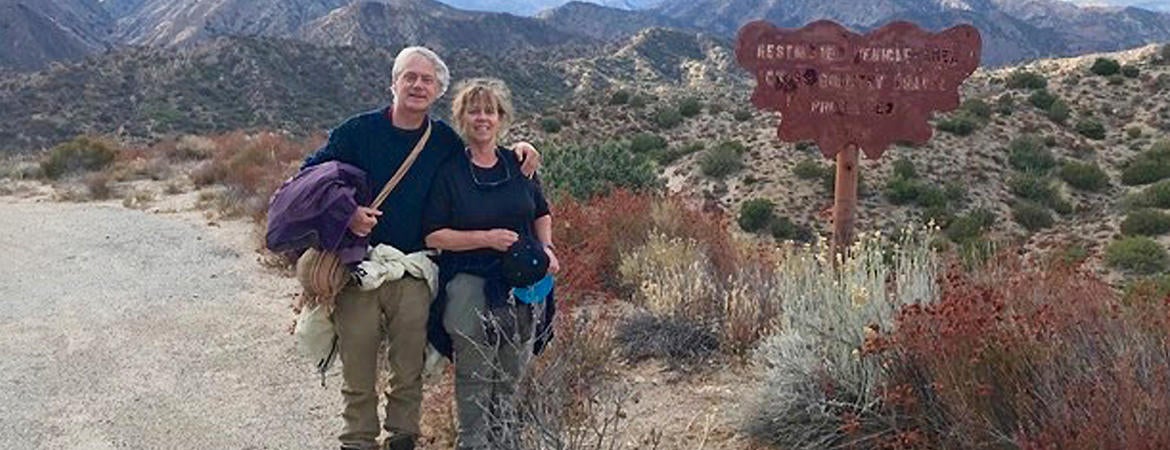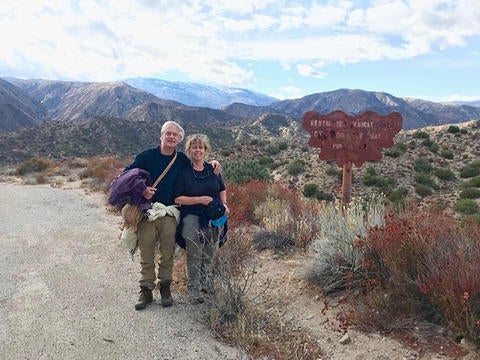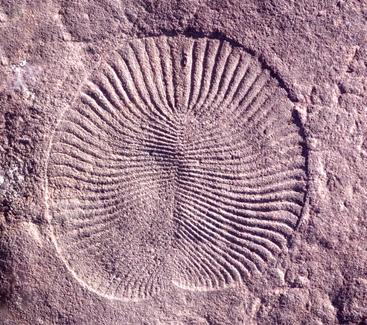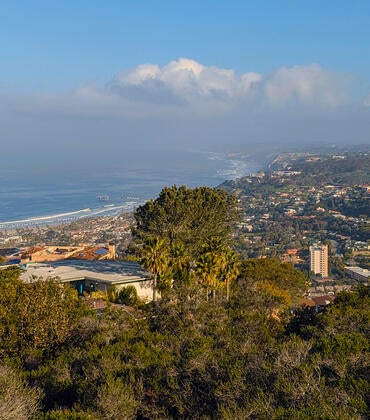
Paleontologist Nigel Hughes has earned one of the highest honors in his field, an achievement made even more remarkable because last year’s winner was another UCR paleontologist — Mary Droser, his wife.
Any paleontologist in the world is eligible for the Society for Sedimentary Geology’s Raymond C. Moore Paleontology Medal. It was unintentional that the society has bestowed it in consecutive years on members of the same family from the same university.
“They didn’t initially know we were married because we have different last names,” Droser said. “In my acceptance last year, I mentioned him and then they realized he had already been named the next awardee! I can’t imagine anyone more deserving of this award than Nigel.”
Every year, the medal is given to one scientist with a “significant record of outstanding contributions” to the field. In particular, the society looks for work that uses paleontology to answer questions from other areas of research. For example, what can fossils expose about ancient environments that the fossils occurred in?
Hughes and Droser both approach this question in different ways with their work. Hughes reconstructs the formation of the Himalaya mountains through his understanding of the fossils in the rocks that formed them.
“What is now the highest point on Earth was, in ancient times, at the bottom of the ocean,” Hughes said. “Our planet is dynamic, continents move around, and this massive mountain range uplifted rocks that were once on the sea floor. The fossils show us this.”
Hughes also studies the well-preserved remains of 450 million-year-old sea creatures called trilobites — how they developed and evolved in response to dramatic changes on prehistoric Earth.
Studying these organisms is valuable, Hughes said, because it can help inform us about wider-scale questions about life on Earth today. That is the approach to their work that previous winners of the Moore medal have taken, including Mary Droser.
Within the field, Droser is known as a paleoecologist, who studies the advent and unfolding of complex life forms on Earth. For more than 20 years, she has been gathering fossilized remains of the earliest animals on the planet from the Australian Outback. She and her students travel there annually to discover strange, ancient animals previously unknown to science.
Typically, paleontologists collect fossils and bring them to a museum for further study. Instead, Droser and her collaborators excavate Australian fossil beds, flip them over, piece them together like a puzzle and leave them in the field.
What emerges is a more complete picture of the creatures that emerged during the Ediacaran period, about 555-million years ago. “It was the coolest time in the history of life, with the advent of animals developing things we take for granted now, like mobility and sexual reproduction,” Droser said. “These findings can help explain how life might evolve on any planet.”
Passion for paleontology is a key element of the couple’s success, and it is infectious. Both of their adult children have become scientists. Their daughter Emmy Hughes is working on a doctorate in planetary geology at Georgia Tech, and their son Ian Hughes is studying marine biology at UC San Diego.
Droser says she and Hughes have close relationships with their graduate students, as well. Droser’s students accompany her to the desolate Outback every year, where they live together in close quarters for weeks at a time with desert temperature extremes, few amenities and dark that sets in around 5 p.m.
“It’s not the way paleontology is portrayed in movies, with someone softly brushing a fossil in an office,” Droser said. “We’ve had a great group willing to lean into these eccentric conditions and work hard.”
Many of Droser and Hughes’ former doctorate students have found positions at other universities including Yale, University of Chicago, and UC Berkeley. Though this is a testament to their mentorship, Droser says she and Hughes can attribute much of their own success to their students.
“They keep me and Nigel on our toes, bringing fresh ideas to the table. A diversity of opinions and ideas is so important,” Droser said. “In fact, it makes all the difference.”






